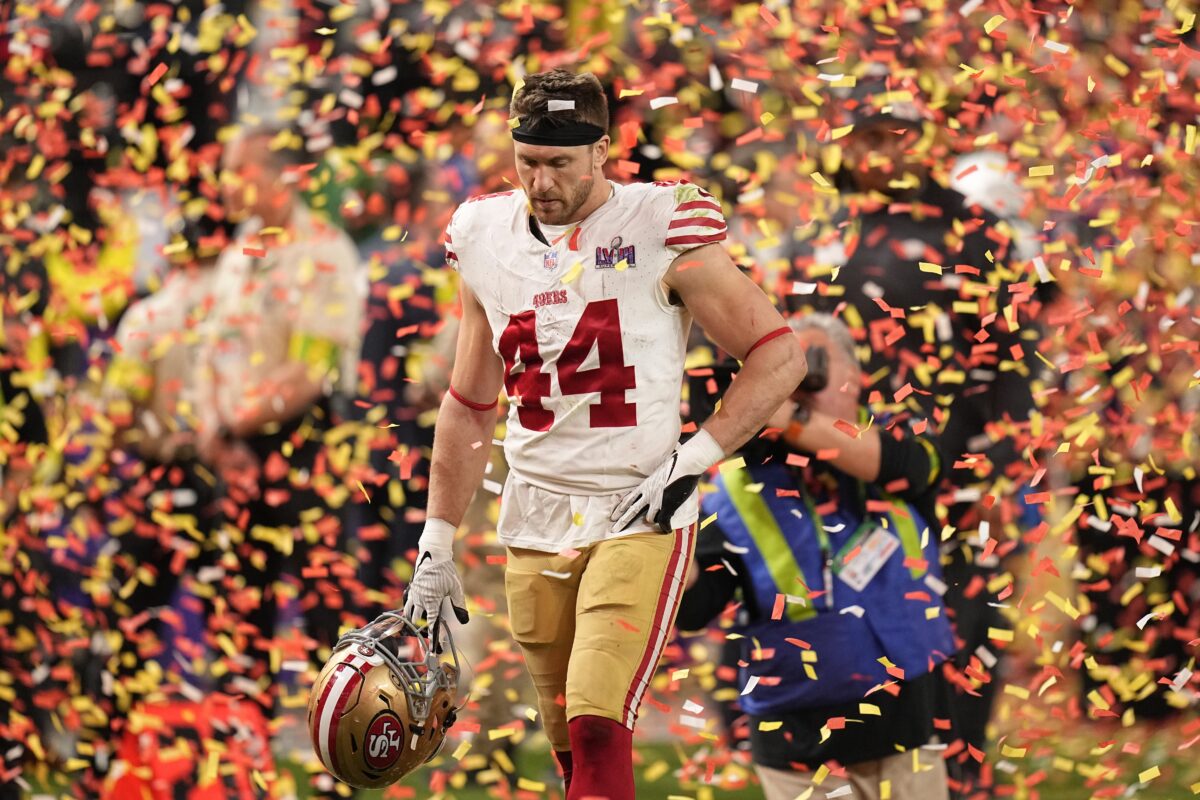49ers Players Make Stunning Admission After Super Bowl Loss That They Were Unaware of Overtime Rules

Eric Gay/AP
In the biggest football game in most of their lives, multiple San Francisco 49ers players admitted to not knowing the playoff overtime rules in Super Bowl LVIII.
The 49ers won the overtime coin toss against the Kansas City Chiefs and elected to receive the ball first. Quarterback Brock Purdy led the team down the field the drive ended with a made field goal.
On the Chiefs following drive, Mahomes threw a touchdown pass to receiver Mecole Hardman to win the game.
After the game, much of the talk was about the Niners’ decision to receive the ball. According to playoff overtime rules, if a team scores a touchdown on the first possession of the extra period, the other team is given a chance to respond with a touchdown of their own. If that team is stopped on the next possession, however, the game is over.
According to several Niners, that rule was news to them. Defensive lineman Arik Armstead told The Ringer he learned of the rules for the first time when they were shown on the big screen at Las Vegas’ Allegiant Stadium.
Niners fullback Kyle Juszczyk said after the game that he thought his team could win by scoring a touchdown on the first drive.
Here’s #49ers FB Kyle Juszczyk admitting he wasn’t aware of the new overtime rules:
“I assumed you just want the ball because you score a touchdown and win.”pic.twitter.com/6SHkhBgPOu https://t.co/NwBQxilmM4
— Ari Meirov (@MySportsUpdate) February 12, 2024
The Chiefs, on the other hand, were prepared for the moment.
“We talked through this for two weeks,” Chiefs defensive Chris Jones said in the report. “How we was going to give the ball to the opponent; if they scored, we was going for two at the end of the game. We rehearsed it.”
Prior to the 2010 season, all overtimes went by a sudden-death rule, meaning an opening-drive field goal would win the game. That season, however, the league adjusted the sudden-death rule for the playoffs. While an opening-drive touchdown would still end the game, a field goal would give the other team a chance to respond with either a game-tying field goal of their own or a game-winning touchdown. That rule was expanded to the regular season in 2012.
Years later, the rule was again tweaked. Now, opening-drive touchdowns in overtime no longer end the game. The other team must then respond with a touchdown of their own on the next drive, or the game is over.





Comments
↓ Scroll down for comments ↓